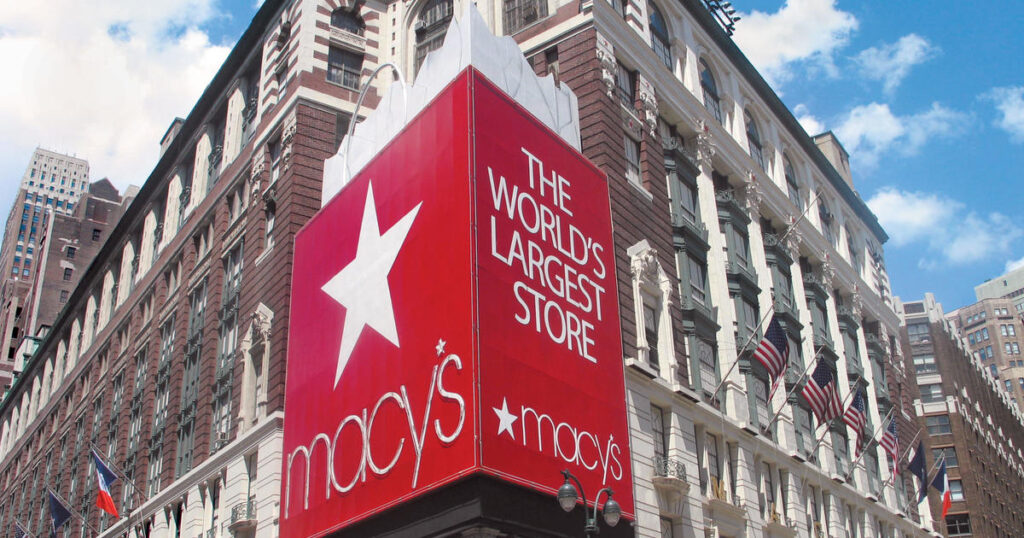Macy’s has received a $5.8 billion offer from an investment group to take the iconic department store chain private, a deal that could have more to do with the retailer’s real estate holdings than its actual business.
The bid for the 165-year-old retailer was made December 1 by Arkhouse Management, a real estate focused investing firm and Brigade Capital Management, a global asset manager, the Wall Street Journal reported on Sunday, citing people familiar with the matter.
The investor group already holds a large stake in Macy’s through Arkhouse-managed funds, and offered to pay $21 a share to purchase Macy’s stock that it doesn’t already own, the newspaper reported.
Macy’s stock closed at just above $17 a share on Friday, down about 17% for the year. On Monday afternoon, shares were up 22% at $21.16 a piece, giving the company a market valuation of $5.8 billion.
Years of chronic underperformance has weighed on Macy’s shares, making the company a relatively attractive acquisition target. But its value has more do with real estate than the company’s business, according to retail analyst Neal Saunders.
“As Macy’s still owns many of its own stores, including some flagship locations, its real estate portfolio is worth at least $6 billion at a conservative estimate,” Saunders, managing director of GlobalData, said in an email. “That’s more than Macy’s current market capitalization, which means that any savvy investor could snag Macy’s for a bargain and make a generous return by monetizing the real estate alone. For a real estate focused business such as Arkhouse, this is a bet worth taking.”
Arkhouse, Brigade and Macy’s all declined comment.
Bing Guan/Bloomberg via Getty Images
The retailer, known for its yearly Thanksgiving Day Parade in New York City, operate almost 500 stores nationwide under its own brand and also runs Bloomingdale’s, a more upscale chain with 30-plus locations.
Macy’s reported $1.2 billion in profit on $24.4 billion in revenue in the last fiscal year, down from $1.4 billion in earnings on $24.5 billion in revenue in 2021.
Department stores have struggled amid industry consolidation, with JCPenney, Neiman Marcus and Lord & Taylor all declaring bankruptcy in 2020.
The retailer has been engaged in a turnaround effort led by CEO Jeff Gennette, who is retiring in February and who will be succeeded by Tony Spring, who now runs Bloomingdale’s.
In Saunders’ view, a takeover by the investment firms could be lucrative for investors, while boding ill for Macy’s future.
“Management must now make a judgment call. Either they show confidence in their future plans and keep Macy’s as a public company, or they let Macy’s go private in a transaction that will likely see the brand fade further and faster.”

